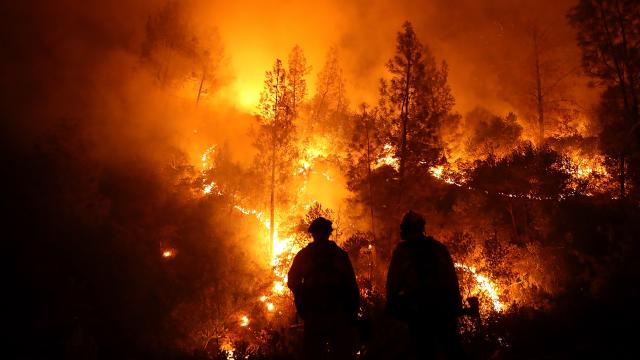Legislators in Texas are mulling a bill that would make illegal to “impair or degrade” mobile data in any declared disaster zone, in an apparent response to telecom giant Verizon’s decision last year to tell California firefighters busy tackling the deadly Mendocino Complex fire they needed to upgrade their plan or continue to suffer slow speeds.
A version of the bill, which has been brought before the Texas House of Representatives, amends Texas law to state, “A mobile Internet service provider may not impair or degrade lawful mobile Internet service access in an area subject to a declared state of disaster.” It does not revise the law to prevent throttling under any other scenarios, including for emergency personnel outside declared disaster zones.
Per KUT News, it’s one of more than 100 state bills aimed at protecting internet access introduced since the Republican-controlled Federal Communications Commission and its telecom-friendly chief Ajit Pai gutted Barack Obama-era net neutrality rules in a 2017 vote.
Though the net neutrality rules did not ban throttling — just slowing down or blocking content on a discriminatory basis, whether in an anti-competitive manner or just to fit the whims of the provider—Santa Clara County Fire Anthony Bowden wrote in an addendum to a multi-state legal brief seeking the return of the FCC rules that he believed Verizon had deliberately endangered the public to squeeze them for more money:
While Verizon ultimately did lift the throttling, it was only after County Fire subscribed to a new, more expensive plan.
In light of our experience, County Fire believes it is likely that Verizon will continue to use the exigent nature of public safety emergencies and catastrophic events to coerce public agencies into higher-cost plans, ultimately paying significantly more for mission-critical service—even if that means risking harm to public safety during negotiations.
Verizon later insisted that the incident was a “customer support mistake” and it had a policy of removing restrictions in emergency situations, and the company later released a series of (widely reviled) ads claiming its “innovations and technology allow first responders to do their jobs.” But if that’s the case, there’s surely no reason for this kind of bill not to get passed, or for Verizon to oppose it, right?
(We’ve reached out to Verizon for comment, and will update if we hear back.)
A court case, Mozilla v. FCC, in which the plaintiffs allege that the FCC’s repeal of the net neutrality rules was illegal for a number of reasons, is still making it through the federal court system.
“The fact that this is now bubbling up at the state level is a good sign,” Evan Greer, deputy director of pro-net neutrality group Fight for the Future, told KUT News. “But in reality, we need the FCC to actually do its job and ensure that these companies aren’t acting in ways that put the public in danger.”
[KUT News]
